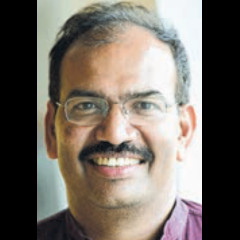Even though I have visited many nations to take part in big and small meetings- officially as well as at the personal level- I have never seen anywhere, but in Kerala, the tendency for speakers to waste time heaping praises on those who are present, or absent, in the dais.
The incident in which the state's CM did not have time to speak after the welcome speech extended to 40 minutes is the latest case in example. Not long ago, speakers used to heap praises on kings and diwans during meetings to enter into their good books; it seems that habit has struck with us.
Structure the meeting
It is a nice practice to structure the timing of meetings in order to make judicious use of time. For example, if the meeting is meant for inaugurations, 60 minutes would be more than enough. A meeting meant for detailed discussions can take up to two hours while a debate can have phased meetings with breaks in between.
Overcrowded dais
It is not nice to have more people on the dais than the audience. It is better not to have more than six people on the dais so that everyone in the dais gets a chance to speak something useful.
One chairperson is enough
Having a single chairperson and no one else in command of the meeting would ensure that the audience does not get bored easily. The chairperson can control the meeting as well as introduce the guests. These days, event managers have two or three controllers who go on introducing the guests more than two times. The welcome speech would be over once the chairperson is introduced and handed over the reins of the meeting.
Be punctual
Meetings need to start and end at the announced time, else it would be a waste of time for everyone.
Avoid celebrities
It is better to avoid celebrities who come in the middle of the meeting often leading to the loss of flow of the meeting. After they come, all eyes would be on them and after speaking a few words, they leave, making all other speakers irrelevant. This is equivalent to humiliating the audience and those on the dais.
The chief guest speaks last
Ensure that the chief guest speaks last. Others who speak before him or her need to keep their words short. If there are more than one guest, schedule their speech towards the end of the meeting.
Include interaction
In most meetings outside India, the speakers get a chance to interact with the audience. At least 20 per cent of the total time is spent on such interactions. This would drive in the ideas of the speaker and also lead to discussions.
(The author is the chief of disaster risk reduction in the UN environment programme)

























